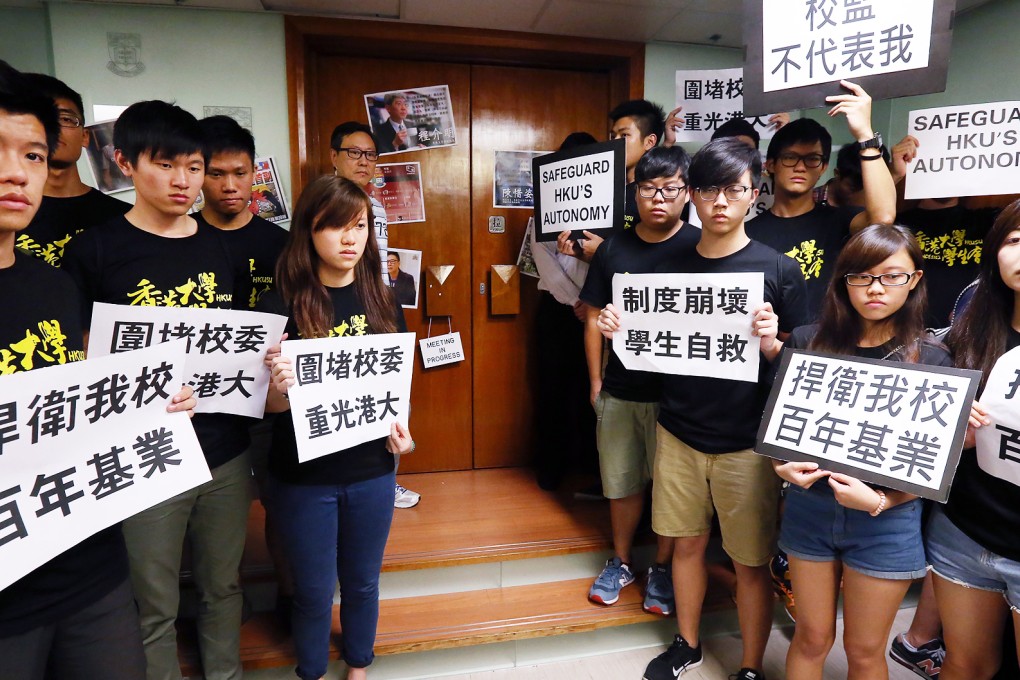Universities are the new battleground for democracy in Hong Kong
Kerry Kennedy says protests over perceived government interference in university management, most recently in HKU, reflect society's divided views on governance

Hong Kong's quiet did not last long. The tents are gone from Admiralty, and the government's proposal for electoral reform was defeated, but now the focus is on universities and perceived government influence in their management. The issue first surfaced when the appointment of Professor Leonard Cheng Kwok-hon as Lingnan's president was criticised because he had been a member of Chief Executive Leung Chun-ying's election committee. Students felt they had not been included in the appointment process, so the political issue was heightened. The same complaint was made by Baptist University students who felt they had not been adequately consulted when Roland Chin Tai-hong was appointed president. That issue was not political but related to democratic processes.
What these cases demonstrate is that Hong Kong's universities are cast in a democratic mould.
This is the context in which the University of Hong Kong council's failure to appoint Professor Johannes Chan Man-mun as pro-vice-chancellor must be understood. There are few precedents either in Hong Kong or elsewhere in which such an appointment - largely middle management - would even be put before the council. Usually such appointments are made by the university president. Thus Chan's non-appointment looks like interference from the council, which is charged with overseeing the strategic direction of the university rather than becoming involved in its day-to-day management.
Chan's non-appointment looks like interference from the council, which is charged with overseeing the strategic direction of the university rather than becoming involved in its day-to-day management
Certainly this is how students and the alumni concern group see it, and explains why HKU students entered the council room to push their case.
The irony of all this is that Hong Kong's universities are much freer than most of their counterparts in the region. With few exceptions, regional universities come firmly under the control of the ministries of education, whether the jurisdictions are democratic (South Korea, Taiwan and Thailand) or authoritarian (mainland China and Myanmar).
Hong Kong's universities, by contrast, are managed by the government at arm's length through the University Grants Committee. Senior university appointments are made by governing councils, and university curriculums are developed internally apart from regular external quality assurance audits.
The sticking point, however, is that in all university ordinances, the chief executive is the chancellor. This is currently viewed as a major issue at HKU, where Leung Chun-ying's appointees are seen to be holding up Chan's appointment. Yet the issue goes beyond HKU, as there is strong opposition to the chief executive having a role in relation to universities. There is a movement seeking to change that aspect.